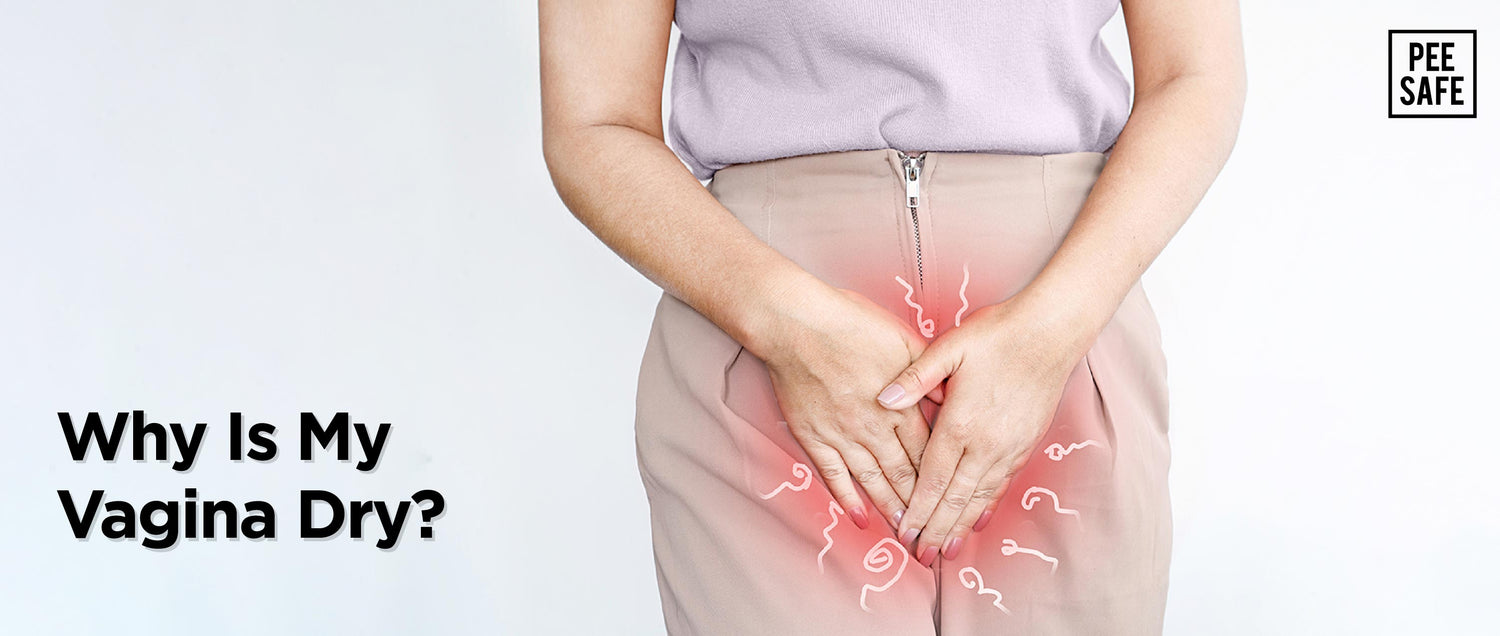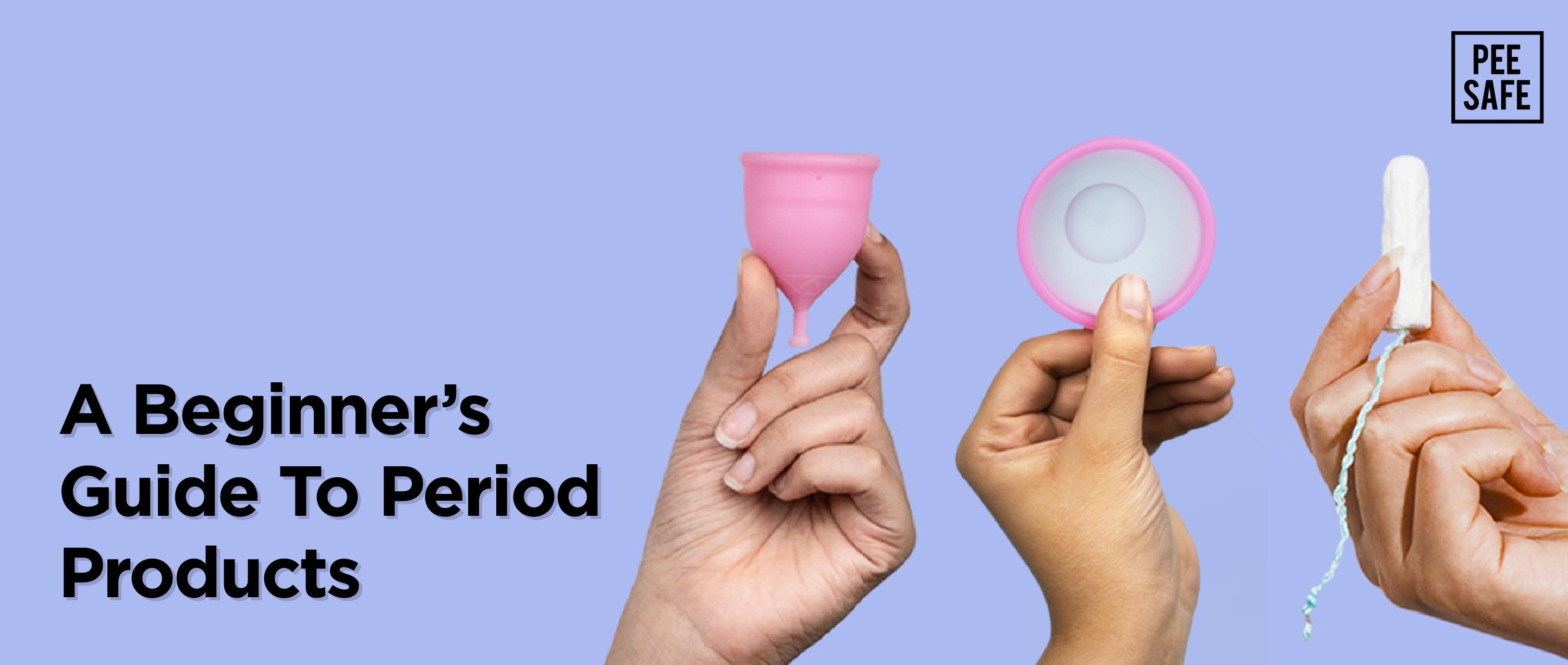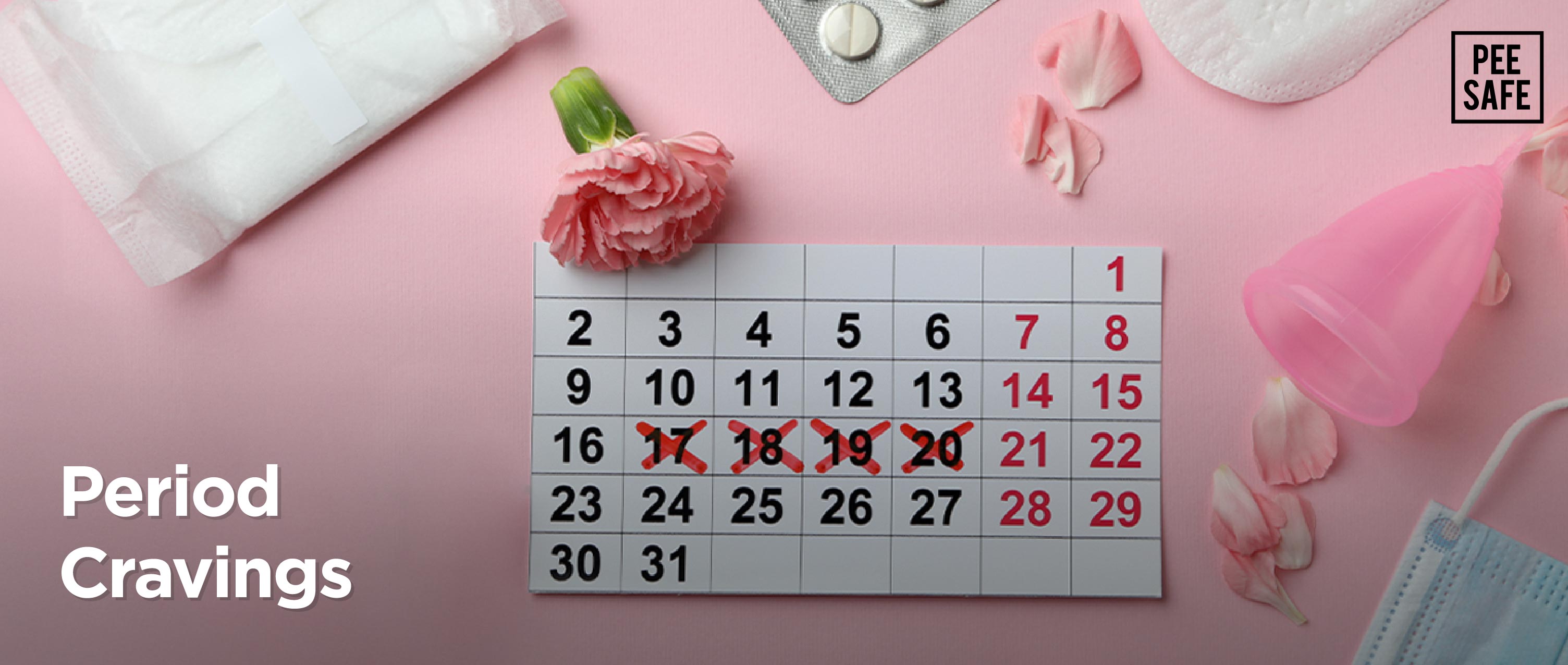Are you facing a dry spell in your vagina? Don’t worry you’re not alone!
While we often talk about vaginal discharge and periods, rarely is it ever that we talk about a dry vagina. Yes, vaginal dryness is quite a common condition. But, what exactly is vaginal dryness and why is it caused?
Here's the low-down on all things vaginal dryness and what you can do to prevent it .
What Is Vaginal Dryness?
Vaginal dryness is a somewhat painful condition which affects your vagina. This is caused by a hormone imbalance and is very commonly associated with menopause. While the vagina is usually well lubricated, when it gets dry it can lead to irritation and pain while exercising, sleeping, and even during intercourse!
What Causes Vaginal Dryness?
Vaginal dryness is commonly caused due to a fall in estrogen levels at the time of menopause. Menopause is that stage in life where you no longer get periods and cannot get pregnant. Estrogen plays an important role in keeping your vagina well-lubricated and moist. When the estrogen levels in your body dip, the moisture in your vagina dips. There can also be several other reasons for vaginal dryness such as:
- Breastfeeding: Post-delivery estrogen levels in the body tend to fall due to the production of breast milk. This leads to vaginal dryness among breastfeeding women.
- Birth Control Pills: Birth control pills also lead to vaginal dryness as they affect the hormone level of the body. In case vaginal dryness starts affecting your daily life, make sure you consult a medical practitioner to discuss alternative birth control options.
- Cancer Treatments: Chemotherapy can affect your ovaries’ hormone-producing abilities. The two most important hormones produced by the ovaries are estrogen and progesterone. Thus, a common side effect of chemo can be vaginal dryness.
- Diabetes: High blood sugar affects the blood vessels which restricts blood flow to your vagina. This can lead to dryness in your vagina.
- Not Being Sexually Aroused: If you’re not sexually aroused, your vagina can feel very dry. A low libido, stress, and anxiety can reduce your arousal during intercourse causing said dryness.
Why Does A Dry Vagina Lead To Painful Sex?
While you’re getting intimate with your partner, a dry vagina can often make sex feel uneasy. During intercourse, glands in your vagina produce lubrication which keeps you moisturised and supple. When this fails to happen, sexual intercourse can be extremely painful and uncomfortable. This can also lower your sex drive.
What Does A Dry Vagina Feel Like?
In addition to your vagina feeling dry to the touch, a dry vagina has a couple of other symptoms such as:
- Soreness
- Burning and itching
- Urinary tract infections(UTIs)
- Frequent urination
- Painful intercourse
This sounds quite awful doesn’t it? But, there are a few different options that can be exercised to reduce the irritation and pain that comes with dryness in your vagina.
How To Treat Vaginal Dryness?
While dryness can leave you thirsting for moisture and relief, here are a few options that can be considered to help ease this condition:
- Vaginal Creams- Like a regular moisturiser, vaginal creams can be applied to your vagina to keep it moisturised and supple.
- Lubricants- A condom's strongest ally, lube is a must have when you’re getting to intercourse. Not only does this help make sex more pleasurable, it also helps get things going when you have a dry vagina. This small addition can make your sexy times so much better.
- Unscented Soaps- It is generally recommended to use unscented soaps for your vagina to ensure an optimum pH level. One of the best things that might be able to help in maintaining the pH level is intimate wash, which keeps you itch-free and feeling fresh all day!
- Vaginal Rings- Vaginal rings are a type of birth control. These are placed inside your vagina and aid in hormone release. These release estrogen, thereby increasing the hormone level and helping you combat the issue of vaginal dryness. If you decide to switch to vaginal rings, make sure you’re consulting a medical practitioner.
- Prioritising Foreplay- Engaging in adequate foreplay is not only fun, but it also makes intercourse so much more comfortable, less painful and enjoyable. Make sure that you’re spending enough time getting things hot and heavy before you jump straight to it!
- Maintaining Hygiene Practises- Keep germs and bacteria at bay by ensuring standard hygiene practices which helps reduce the chances of a UTI.
If your vagina starts feeling like it needs some moisture, make sure you consult your medical practitioner. While the transition to menopause might be a difficult time, prioritise taking care of yourself and your vagina! After all, dryness is not limited solely to the skin on your arms and legs!
-
✍️ This article was curated by Sarah Abraham




























